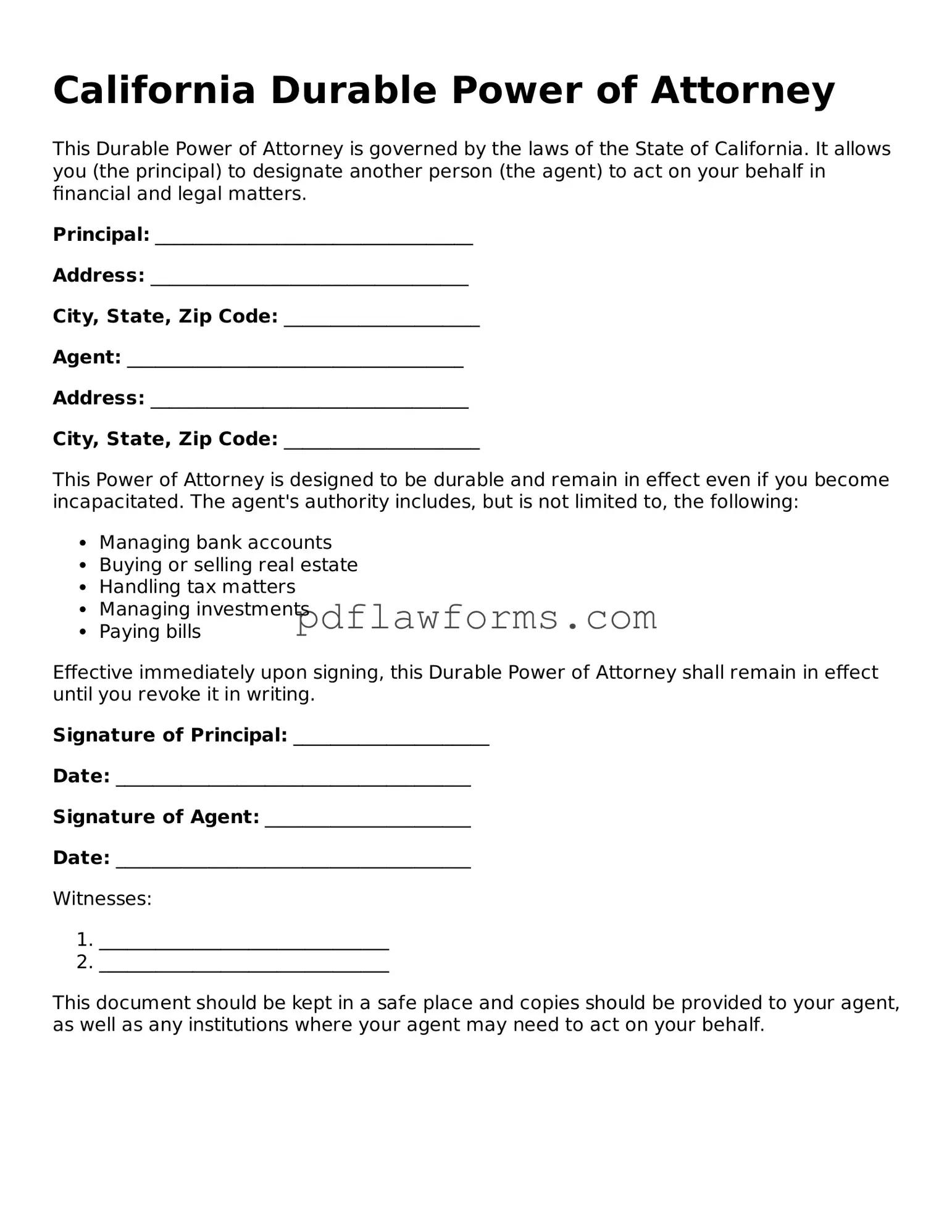Filling out a California Durable Power of Attorney (DPOA) form can be a straightforward process, but many people make common mistakes that can lead to complications down the line. Understanding these pitfalls can help ensure that your intentions are clearly communicated and legally binding.
One frequent mistake is not specifying the powers granted to the agent. A general statement may leave too much room for interpretation. It's crucial to clearly outline the specific decisions your agent can make on your behalf, whether it's regarding finances, healthcare, or other matters.
Another common error is failing to date the document. Without a date, it can create confusion about when the authority was granted. This oversight might lead to disputes or challenges regarding the validity of the DPOA.
People often forget to sign the document in front of a notary public or witnesses, which is a requirement in California. A signature without proper notarization can render the document ineffective, defeating its purpose.
Additionally, some individuals neglect to communicate their wishes to their chosen agent. It's essential to have an open discussion with the person you designate. This conversation ensures that they understand your preferences and are willing to take on the responsibility.
Another mistake is not considering alternate agents. Life is unpredictable, and your first choice may not always be available when needed. Designating a backup agent can provide peace of mind and ensure that your wishes are honored.
Some people also overlook the importance of reviewing and updating the DPOA regularly. Life changes, such as marriage, divorce, or the birth of a child, can impact your decisions. Regularly revisiting the document ensures it reflects your current situation and intentions.
Another common oversight is failing to check state-specific requirements. While the DPOA form is standardized, certain nuances in California law may apply. Being aware of these can prevent issues in the future.
Many individuals mistakenly assume that a DPOA automatically becomes effective immediately. However, in some cases, you may want it to be effective only upon a specific event, such as incapacitation. Clearly stating your intentions in the document is vital.
Finally, some people do not keep copies of the DPOA in accessible locations. If the document cannot be located when needed, it can lead to delays and complications. Keeping multiple copies in safe but accessible places is a wise practice.
By avoiding these mistakes, you can create a Durable Power of Attorney that truly reflects your wishes and provides clarity for your loved ones. Taking the time to fill out the form correctly will ensure that your choices are respected and upheld when it matters most.

